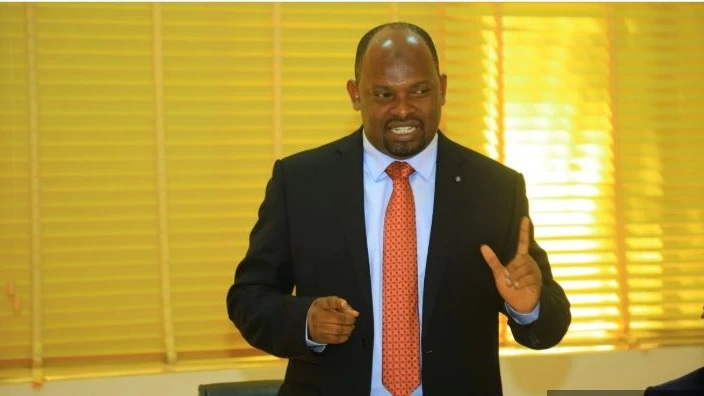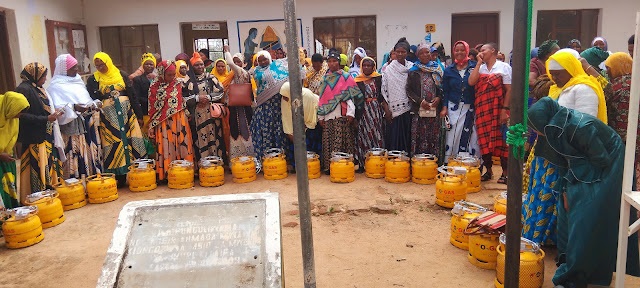Young entrepreneurs can start a real estate business with limited capital

Navigating the real estate market, for young entrepreneurs, can seem daunting, especially, without substantial capital. Many aspirants to this wonder, “I am young, and I don’t have money to enter real estate. What can I do?” This is the plight of countless young people eager to break into the industry.
Kelvin Nyame, CEO of Meqasa and a distinguished authority in the real estate industry, addressed this issue at the Health and Wealth Conference organised by the Young Champions Global Network. His insights offer practical strategies for young dreamers looking to carve a path in the real estate industry, even with limited funds.
Kelvin Nyame leads product design and strategic initiatives at Meqasa, where he has played a pivotal role for over a decade. His leadership has significantly expanded Meqasa’s client base to include thousands of developers, agents, and property owners while serving millions of property seekers nationwide and beyond. Under his guidance, Meqasa has risen to prominence as Ghana’s foremost real estate portal, leveraging his deep industry knowledge and exemplary leadership.
Kelvin’s extensive experience provides him with a profound understanding of market dynamics, making his insights invaluable for young entrepreneurs entering the real estate space. His voice at conferences and through various platforms serves as a compelling reference point, offering practical and strategic advice tailored to navigate the complexities of the real estate landscape effectively.
Kelvin advocates for a strategic approach to real estate through fractional ownership, particularly, in farmland investment. Young people, especially students, have limited capital.
While this is true for individuals, there is no limit to what a group of like-minded youth can do when they join forces. His advice centres on pooling resources among students to acquire affordable farmland outside Accra.
This method not only facilitates access to valuable property at lower costs but also provides several benefits. As the land value appreciates over time, it can be utilised for agricultural purposes or leased out for additional income.
This low-risk, high-reward strategy allows young investors to gain valuable business exposure without the hefty initial investment typically required in more competitive markets.
Another innovative approach Kelvin champions is real estate finance, where students collaborate to cover the rent advances of some students for a minimal fee. Real estate financing is one area with great potential in Ghana.
While this is true, the high risk associated with real estate financing in Ghana is common knowledge. Kelvin advocates for a version of this business model that presents lower risks.
This model addresses the challenge of high upfront housing costs, making it more accessible for young individuals in school. By implementing a microfinance model, students can cover the financial burden and provide a suitable framework for paying back.
This microfinance approach involves pooling resources from multiple students to create a fund that can be used to provide short-term, low-interest loans for rent advances. This, if done properly, not only helps alleviate immediate housing burdens but also establishes a sustainable framework for future real estate endeavours.
The furniture market, an integral part of the real estate industry, holds vast potential for growth. Many furniture providers currently operate outside the realm of social media, limiting their ability to create pieces that align with current trends. This gap presents an opportunity as consumers increasingly seek stylish yet affordable furniture.
Acting as a facilitator between trend-setting designs found on platforms like Pinterest and skilled artisans, and connecting them with buyers, represents a lucrative business prospect. Such an initiative not only bolsters the local economy but also serves as a platform for artisans to showcase their artistry.
Whether through an online marketplace or a physical showroom, young entrepreneurs can orchestrate transactions that highlight the distinctive quality and customisation of locally crafted furniture. This approach not only meets consumer demands but also nurtures a thriving community of craftsmen.
Rather than reinventing the wheel, Kelvin advises young entrepreneurs to innovate within existing markets. Many business ventures have emerged lately. One problem that is prevalent is growth. Ghanaian businesses usually struggle to scale up for a number of reasons.
As young entrepreneurs, it would be easier to add value to an already existing business idea, than to create one that solves an entirely new problem. For example, one can offer faster services, and more fashionable products, among others.
By identifying and improving upon current products or services, aspiring real estate entrepreneurs can carve out niches and capture market share. Whether through technological advancements, enhanced customer experiences, or streamlined processes, these innovations can create value and differentiation in a competitive industry.
To implement these strategies effectively, Kelvin recommends organising interest groups focused on real estate, finance, or craftsmanship.
Education and skill-building workshops are crucial for equipping young entrepreneurs with essential knowledge. Networking with local artisans, real estate professionals, and financial advisors can provide valuable mentorship and partnership opportunities.
Starting with small-scale pilot projects allows for experimentation and validation of business ideas before scaling operations. Additionally, securing funding through grants, crowdfunding, or strategic partnerships can mobilise the necessary resources for sustainable growth.
Top Headlines
© 2024 IPPMEDIA.COM. ALL RIGHTS RESERVED

























